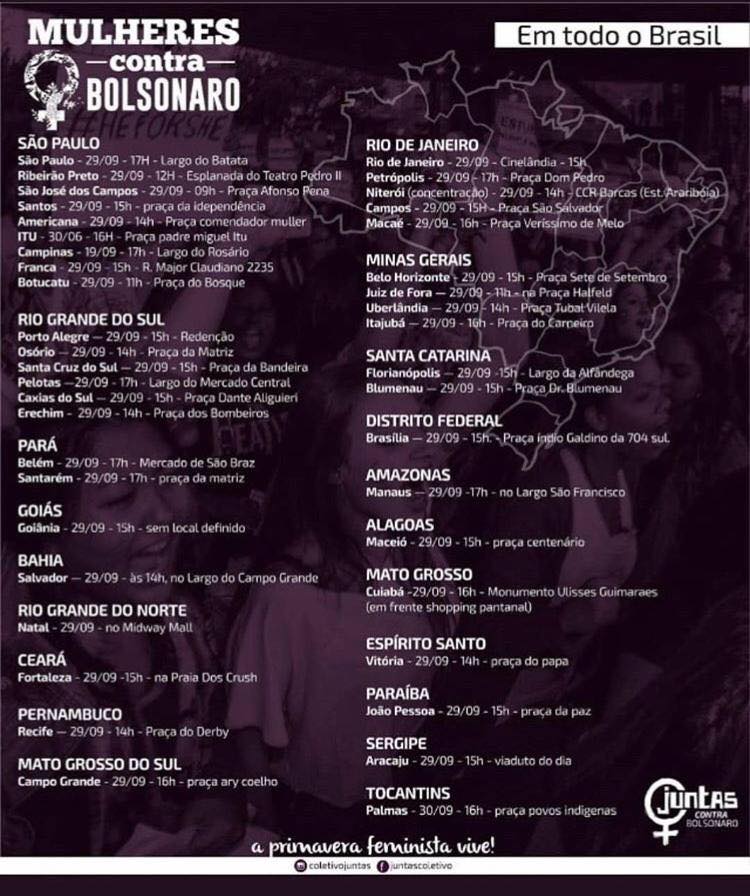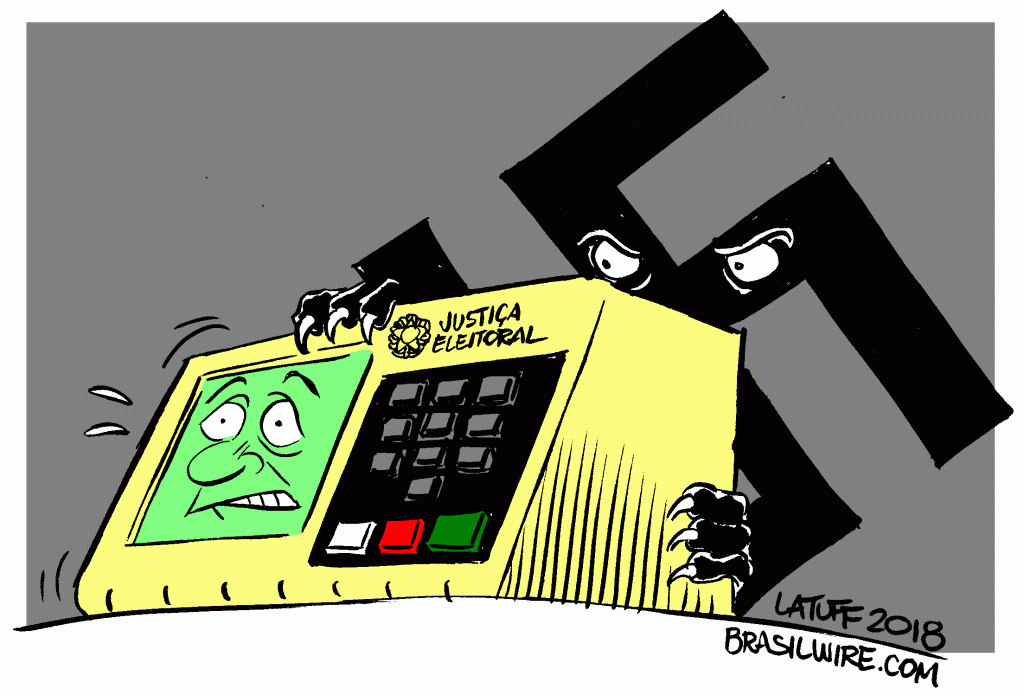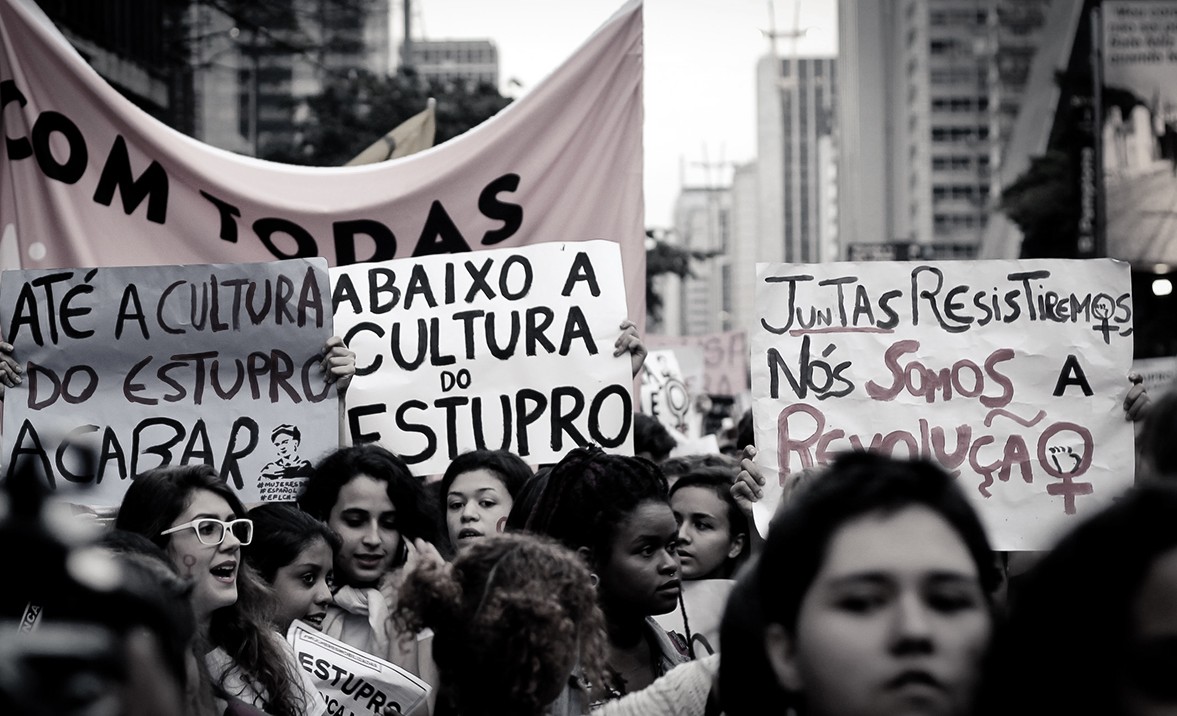These are sombre times for Brasil. An election looms, its leading candidate is in jail on politically motivated charges, and has been withdrawn. His distant challenger now sits in first place. He is a fascist and a white supremacist, in a country with well over half of its population of African or Indigenous descent.
To his supporters, Jair Bolsonaro’s rape remarks to Congresswoman Maria do Rosario, for which he was convicted, or interviews such as when he said that Chile’s Augusto Pinochet “did what he had to do but didn’t go far enough” or that “30,000 needed to be killed for Brazil to function” are dismissed as “fake news”. Like fascism itself, Bolsonaro thrives on weaponised ignorance, scapegoating, misinformation and fear.
Dilma Rousseff’s ouster opened a Pandora’s box of constitutional abuse, much like the Institutional Acts which followed the Military Coup of 1964. Many who casually went along with the removal of Rousseff on either of its bogus media pretexts (anti-corruption or economic improvement), are now, like their parents and grandparents generations in the mid 1960s, faced with something that terrifies them; a Neofascist within a heartbeat of the Presidency and a genuine risk of a return to military rule for the first time since 1985.
This was simply unthinkable as protesters went to the streets five years ago, and a mass movement is now gathering to show Brasil and the world that it will never accept this. In effect, Brasil needs to see the biggest anti-fascist mobilisation in contemporary history.

Just three weeks remain until the first round of the 2018 Presidential elections, six until the second round runoff, which as things stand is likely to be between either of the centre-left pair Fernando Haddad of the PT (Workers Party), and Ciro Gomes of PDT (Democratic Labour Party) and PSL (Social Liberal Party) ticket of fascist Jair Bolsonaro and his vice, Army Reserve General Antonio Mourão. Both of the latter have advocated a return to military rule, via whatever means, including an “auto-coup” if elected. Mourão, out-ranking Bolsonaro who was only an Army captain, has said he intends to arbitrarily re-write the constitution.
Bolsonaro and Mourão have eulogised Carlos Alberto Brilhante Ustra, head of the feared DOI-CODI secret police, and the man responsible for the torture of Dilma Rousseff in the early 1970s, with Bolsonaro even dedicating his vote for her impeachment to him.
In a compulsory electoral system he has substantial voting intention amongst Evangelical congregations, where he is depicted as a national saviour. We can only wonder how torture sits with Christian teachings. More troubling still is that he has the blessing of Wall Street, and that of Brazilian Bankers, such as his own economic advisor, “Chicago Boy” Paulo Guedes, who brings with him some economic liberals, businesspeople and usually more moderate conservatives.
Oligarchic media’s long-term vilification of the Workers Party its key figures and the left as a whole has created this vaccuum where many Brazilians no longer trust any of the traditional political parties at all – and into that vacuum rides a far-right saviour populist, far more extreme than anything Europe or North America has seen.
Leading the mobilisation against Bolsonaro are Brazilian women. Less than a week from its creation, the Women united against Bolsonaro Facebook group surpassed two million members and has since been the target of far-right hackers. Antifascist brigades amongst supporters at Serie A football clubs have grown over the past years and are now denouncing players who publicly endorse the fascist candidate.
#EleNão (not him), effectively *Anyone but Bolsonaro* is the rallying slogan. Ciro Gomes and Fernando Haddad are the probable challengers to Bolsonaro in the second round, and either should theoretically beat him, but sections of the Conservative media, such as powerful TV Globo have noticeably softened their tone on the fascist since his stabbing during a campaign rally on September 6th.
Impeachment supporters were asked back in 2016 how the next election could be held in normal circumstances. Now here we are.
Protests against Bolsonaro are scheduled around the country across the weekend of 28/29/30 September.
If there was a moment when Brasil needed your solidarity and support, it is now.

[qpp]

